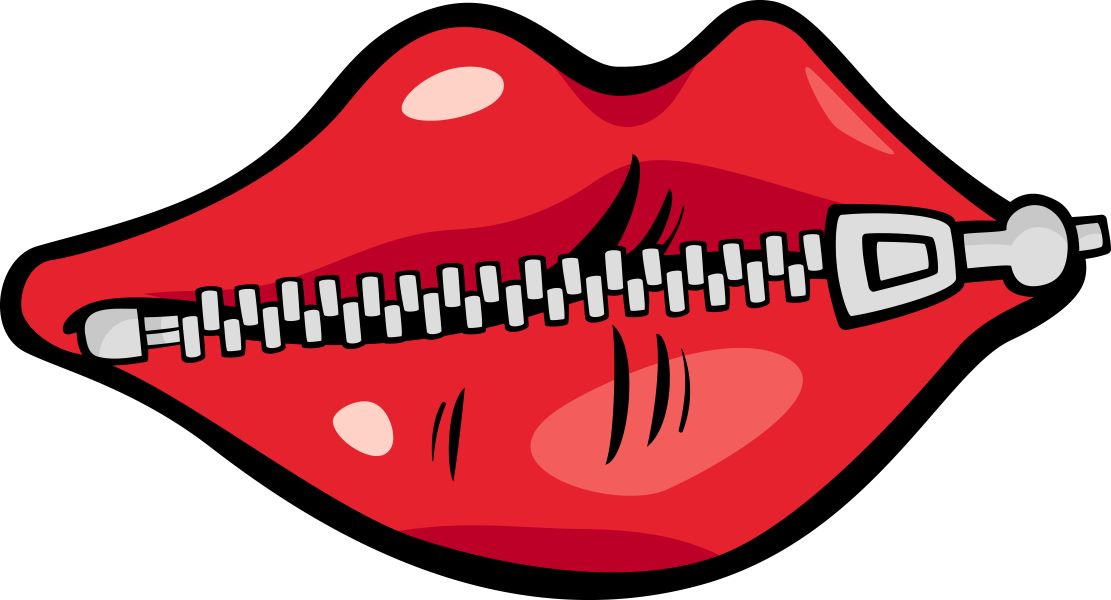Whether you’re a neurotypical perfectionist or your neurodivergent traits make it nigh impossible to ignore anything that could be improved upon, you’re likely intimately familiar with an inner critic.
You know, the inner voice that points out mistakes and shortcomings.
Any imperfection, really. Yours and those of others.
Having an overly critical inner voice is part and parcel of being neurodivergent.
Often simply because being divergent in any way means you’ve heard tons of negative messages in your life.
So many, that you’ve internalized them and now you keep repeating them even if they don’t serve any useful purpose and make you feel bad about yourself to boot.
Mine even has ADHD itself.
It’s hyperactive.
It’s easily distracted into picking me apart on a different topic.
It’s impulsive and butts in where it isn’t wanted.
Wouldn’t you just love to shut it up?
I know I did.
Maybe you’ve learned to bite your tongue and not blurt out what you’re inner critic points out about other people’s results. It’ll have gone a long way to making you more socially acceptable to them.
But how do you shut up your inner critic?
How do you escape your own thoughts?
Well, escape you can’t.
But tame you can.
And have fun doing it!
Taming your inner critic the hard way
Psychologists will tell you to deal with an overactive, overzealous, and overcritical inner voice by creating some distance between it and yourself.
And the tip they’ll commonly give is to talk to yourself in the third person so you don’t identify so closely with what you’re telling yourself.
For example, “Marjan, you really messed up” instead of “I really messed up.”
Thing is, it didn’t work so well for me.
Training yourself to avoid “I” in your thoughts and replace it with your name is exhausting and can take a long time before it’s second nature.
Also, while I got a bit of distance — identified a bit less with my self talk, Marjan is still me. I identify so strongly with that name that the distance I managed to create was tiny. That tiny gap evaporated whenever I loosened my grip on my thoughts.
An exhausting process and results that were hardly worth mentioning — not a good combination for an easily bored brain craving stimulation.
So, I gave up. Not intentionally, not explicitly, but gave up all the same.
Why you want, nay need, distance
Doesn’t mean I don’t see the value in having substantial distance between me and my thoughts.
Because, the thing is, I am not my thoughts, and neither are you your thoughts.
However, the longer and more often you think a thought, like “I suck at [x]” — even if you think it like “Marjan, you suck at [x]” — the deeper it sinks into your bones and the firmer it lodges itself into your beliefs about yourself.
And that’s a problem.
Because it closes a circle — a thought loop.
Like Mahatma Gandhi said:
Your beliefs become your thoughts, your thoughts become your words, your words become your actions, your actions become your habits, your habits become your values, your values become your destiny.
While I don’t agree entirely with his take on how habits become values (though maybe I need to ponder that a bit more), your beliefs do drive your actions through the thoughts and emotions they (re-)evoke.
And your actions or lack thereof, obviously, dictate the results you get.
That’s why it’s essential to keep your thoughts and emotions under close guard, because otherwise you’ll create results that confirm the beliefs that you had at the start of the loop.
And that’s a vicious circle we can all do without.
So, yes, I absolutely want a clear separation between me — what I belief about myself — and the thoughts that spin around in my head.
Especially the thoughts that berate, diminish, criticize, and generally do nothing to help me move forward. The thoughts that make me avoid what I need to do to get what I want. The thoughts that keep me in inaction, stuck, spinning my wheels.
In other words: the thoughts my inner critic spouts at me.
And without invitation! The cheek!
Taming your inner critic the easier way
Many moons after my failure to talk to myself in the third person, I realized that I had homegrown another technique.
Quite possibly not a unique one, nor one that’s perfect by any measure (ha!).
In fact, it can and often does disappear out of sight (and use). For example, when life gets too overwhelming. But over time it’s become easier to return to the process.
And it works well to tame that inner critic.
To send it packing when it keeps you from doing what you want and need to do or simply from feeling good about yourself.
These are the steps:
Catch yourself giving your inner critic too much air time.
Order it to shut up.
Rinse and repeat.
Step 1 is essential, obviously. If you’re not aware that your inner critic is driving your bus, you can’t tell it to move over and let you back at the steering wheel.
Step 2 is simple. Just tell yourself — well, your inner critic — to “Shut up.”
Step 3 takes persistence. Your inner critic will not roll over and play dead just because you want it to.
Sticking with it
The steps to tame your inner critic may be simple, but as I already mentioned, sticking with it takes persistence.
Here are my tips to help you follow through.
The first is to accept that it will take a while (ha!)
Because your inner critic will put up a fight. It’ll pull its nose at you, belittling you as usual and now also for being unable to make it shut up.
Don’t believe it. Have compassion for it. It’s fighting for its life, after all.
Acknowledge that you’re up against the inertia of a lifelong habit, so give it time and trust that you can turn it into a purring kitten that only pipes up with love bites now and again.
The second is to inject some fun into it
As an easily bored, “I’ve figured out what to do, now can someone else please do it for me” neurodivergent, sticking with anything is a challenge.
Importance and necessity don’t carry any weight in how my brain picks its priorities. So I need to persuade my brain to fall in line by making it interesting or fun, preferably both.
How?
Name the cheeky, judgmental, doesn’t-know-when-to-quit so-and-so.
Then, when you tell it to shut up, it’ll actually feel like you’re talking to someone else.
And, of course, have some fun picking a fun name!
Naming your inner critic for fun and profit persistence
I named it my inner demon.
Hardly fun, is it? Way too serious. And not quite accurate, either. My actual inner demon is a different joke my brain pulls on me.
Absolutely key is to pick a name that puts a smile on your face every time you tell this cheeky so-and-so to shut up, shove off, stuff it, or whatever phrase works for you.
That way shutting up your inner critic becomes self-rewarding, starting a virtuous cycle making it much, much easier to persist.
So, yes, I’m looking for a new name.
Personally, I’m leaning toward a name with Taz in it.
Years ago, I loved watching his cartoons. For his first appearance (in another cartoon) he was described as a "vicious, evil-tempered brute with jaws like a steel trap."
Apt, isn’t it?
I think he lived in a cave, so I could say: “Taz, back to your cave!” That would definitely put a smile on my face.
Some ideas to get you going
Cartoon characters are not the only source for inspiration you can use. Though admittedly, they tend to have fun thrown in for free.
Made up names will do just as well.
Debbie Downer, Nitpicking Nora, Franny Faultfinder, Judging Judy, and Grumpy Georgia.
I like alliterations, you think?
Oh, sorry, they’re all female. Then again, little wonder, so am I.
Here are a few male options: Terrible Tony, Snarky Steven, Bickerin’ Bernie, Dr. Doom, and Nagging Nigel.
But there’s no reason your inner critic character has to have your gender!
In fact, you may want to pick a name that reminds you of someone you’d love to but wouldn’t dare tell to shut up.
That’s virtually guaranteed enjoyment! Even if it has a wry undertone.
Your turn: name your inner critic and tame it
So, if your inner critic claims too much air time, have some fun naming it.
That’ll set you up for success in taming it.
Oh, and do please let me know what you (have) name(d) your inner critic in the comments!











This was fun and interesting, even to someone who thinks that he is not in the least neurodivergent (is that a sign that I am or that I’m not?), but who is quite capable of finding fault in far too many places, mine and others’. My wife and I were having a debate about the phrases we use as self-criticism. I sometimes use “I’m an idiot,” but only for the most trivial of mistakes, whereas she would only use “I’m an idiot” if she really fouled up (and prefers never to use the phrase at all.) But I do find that when I really need to bring myself up short, I do use my first name, as in “Tom, you really need to ...”
Great advice, Marjan!
One strategy I’ve implemented is very similar, but is based on my study of the Enneagram. I notice aspects of my personality (characterized by numbers 1-9 and 3instincts) that pop up and I name them. Internal critic is something like: “there goes my 1-wing again.” I’m not sure I tell it to shut up, but generally just recognizing and naming it is extremely helpful.